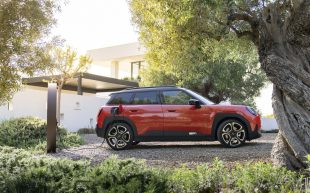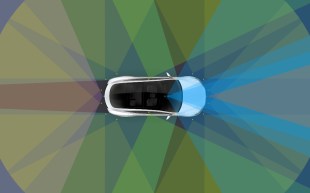Motorists warned of over-reliance on automated driver assist technologies
Tesla's system singled out for taking too much control away from the driver
LEADING car safety bodies have warned about the risk of over reliance on driver assist technology, sometimes marketed as “semi-autonomous”, following a series of tests on a range of new cars.
As part of analysis conducted by Thatcham Research and Euro NCAP, 10 cars equipped with driver aids that can take control of the car’s braking, acceleration and steering were put to the test in a number of scenarios — with results varying dramatically from car to car.
Of the vehicles — ranging from family hatchbacks like the Ford Focus and Nissan Leaf, to premium saloons such as the BMW 5 Series and Tesla Model S — that were tested, none were able to pass the motorway driving-inspired “cut-in” tests, which involved a slower car from an adjacent lane pulling in front of the test car.
The test driver had to take evasive action in each cut-in assessment, as none of the systems were able to react in time to the car that had changed lanes.
Likewise, no assist was able to prevent a crash in the “cut-out” tests, where the car ahead merged into an adjacent lane to avoid a slower-moving vehicle in front.
A higher success rate was reported in adaptive cruise control tests, with the Audi, Ford, Hyundai, Mercedes-Benz, Toyota, Nissan and Volvo models found to offer a “balance between driver and system assistance”.
Thatcham Research and Euro NCAP said these systems do reduce the number of accidents but said that drivers still need to be alert behind the wheel, as the assists shouldn’t be relied upon entirely.
The risk of over-reliance on automated driving aids was found to be highest in the Tesla, with the report concluding the car’s “Autopilot” system resulted in the vehicle being primarily in control.
This was most apparent in the pothole-avoiding “S-bend test”. Whereas assists in other cars would let the driver steer around the obstacle before taking back control, the Tesla attempted to complete the entire manoeuvre by itself, and would initially resist the driver’s steering inputs before disengaging entirely.
Thatcham Research’s director of research Matthew Avery said: “These new Euro NCAP assessments are a heads-up for drivers on what these syustems can and can’t do and starkly shows their limitations, proving beyond any doubt that they are not autonomous.
“It’s a delicate balancing act for carmakers. offer too much assistance to the driver and they disengage; offer too little and the driver thinks ‘what’s the point?’ and switches the system off. The best systems are those that support the driver but leave them in no doubt that they remain in control.”
Tweet to @J_S_Allen Follow @J_S_Allen
After Uber’s fatal crash, will driverless cars ever become a reality?
‘Self-driving’ systems on cars are lulling owners into a false sense of security




